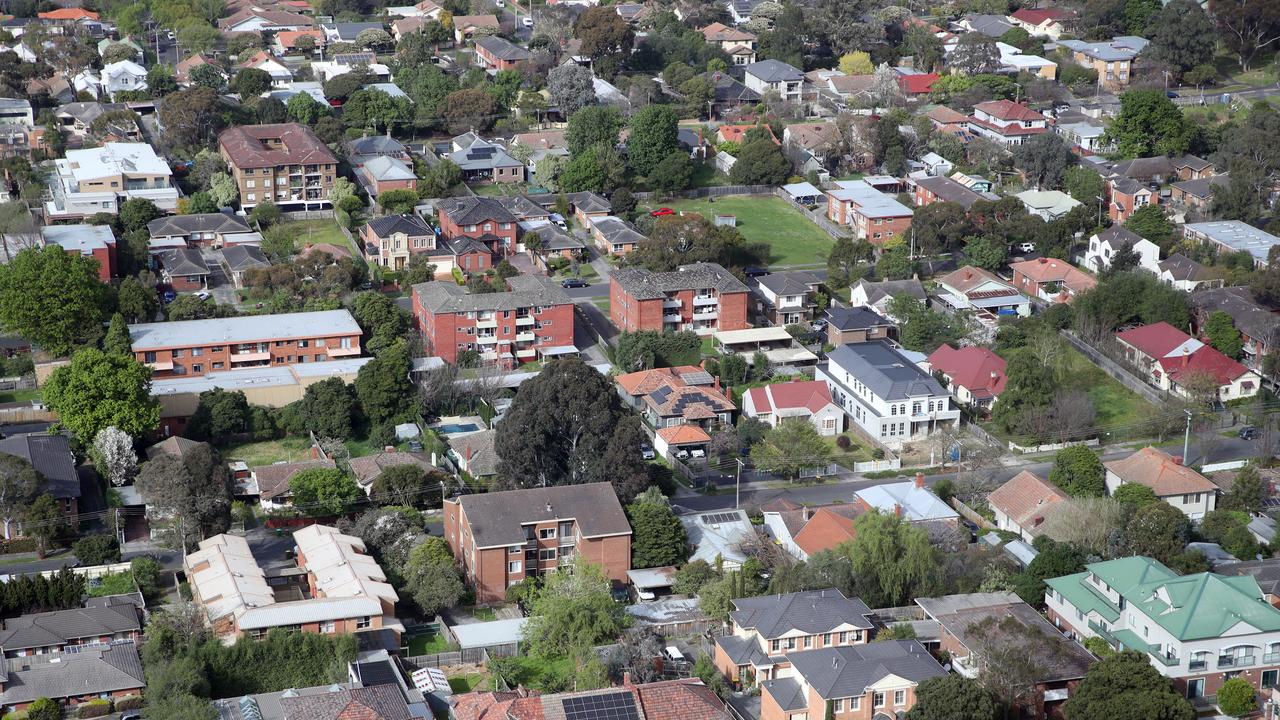‘Failing theories’: Massive RBA misstep revealed as inflation collapses
Inflation is “collapsing” in Australia – but the Reserve Bank just keeps on making the same mistake, as the rest of us suffer.

Interest Rates
Don't miss out on the headlines from Interest Rates. Followed categories will be added to My News.
COMMENT
The Reserve Bank of Australia needs another clean-out. It has lost the plot. Again.
Inflation in Australia is collapsing. It’s going to keep doing so on every measure.
Most pointedly, inflation is being led lower by crashing wage growth.
This is particularly important for the RBA because it trashes its reasoning for keeping interest rates tight.

A dog with new spots
The RBA believes that weak productivity and a positive output gap (by its measure) are going to keep wages and inflation strong.
In traditional economic modelling, this makes sense.
Productivity is the measure of efficiency that increases profits with the same inputs.
The output gap is how far the economy is operating below or above potential, which is the line at which acceptable inflation is drawn.

MORE: Latest RBA interest rates call creates new trap for home buyers
But the Australian economy is not typical, and the RBA could not be more wrong.
First, most economies are led by business investment. Australia is led by immigration and labour market growth.
Such an economic model supplies its own labour in a permanent supply shock. There is no pressure on wages. Ever.
Australian wage growth has been stuck at 3.2 per cent for nine months.
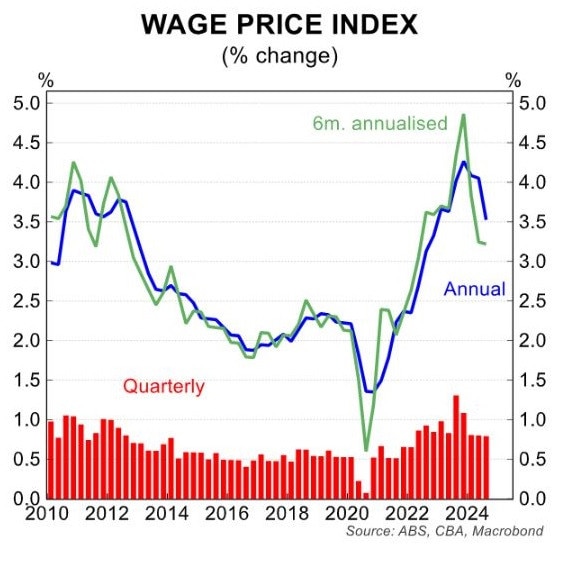
And the leading indicators are pointing lower, not higher.
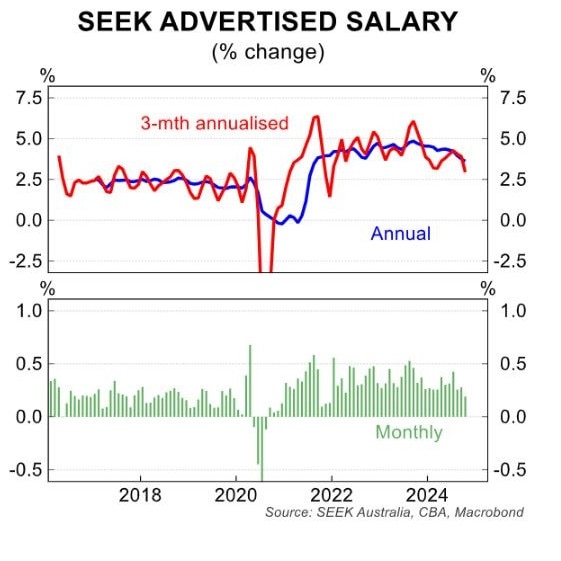
MORE: Why the RBA must cut interest rates
Second, weak productivity doesn’t lift inflation in a labour-market-led growth economy because population growth delivers profits. Firms don’t need to lift prices.
Third, the stickiest part of Australia’s inflation is services. And labour-centric services are the area of the economy most impacted by wage growth.
So, falling wage growth means falling inflation.
Fourth, you have probably never heard of “productivity” and the “output gap” anyway.
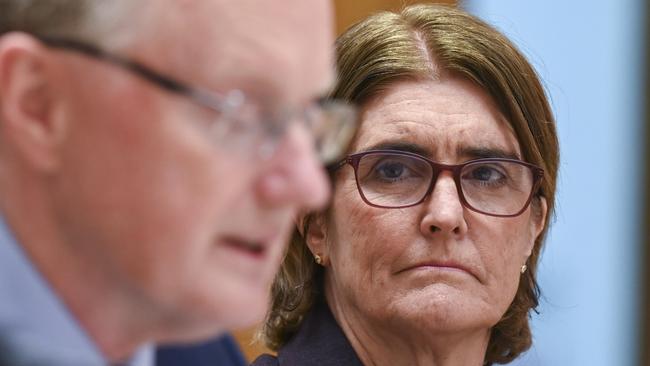
These are concepts that the RBA has rarely used in modern times. The RBA eras of former governors Glenn Stevens and Phil Lowe would mention these in passing, but they were never central to policy outcomes.
The reason why is that they are too abstract, theoretical and hard to measure with any precision.
The Michele Bullock era RBA appears to have fallen into a test tube of perfect theory over what is happening in the real economy.
A dog that can’t change its spots
Oddly, this is precisely what got the Lowe RBA into so much trouble.
In the pre-Covid years, the Lowe RBA didn’t bother much with “output gaps” and “productivity” as central to setting interest rates, but it also preferred its models to the reality of collapsing wage growth and inflation.
Its performance was embarrassing.
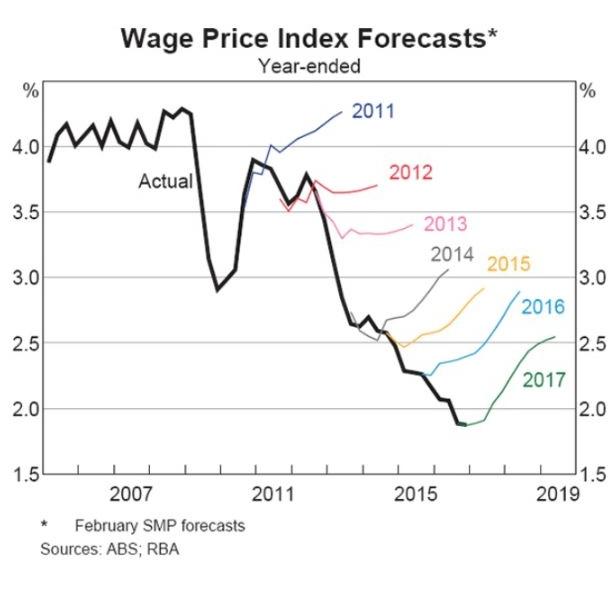
Now, the Bullock RBA is doing exactly the same thing, with different tools.
One would have thought that economists who have been promoted to run the RBA only because the Lowe RBA was too hawkish for too long would be sensitive to the danger.
But they have gone the other way, and so repeated the same mistake.
Perhaps they are worried about the perception of politicisation.
But that’s hardly an excuse, as the economy approaches two years in recession.
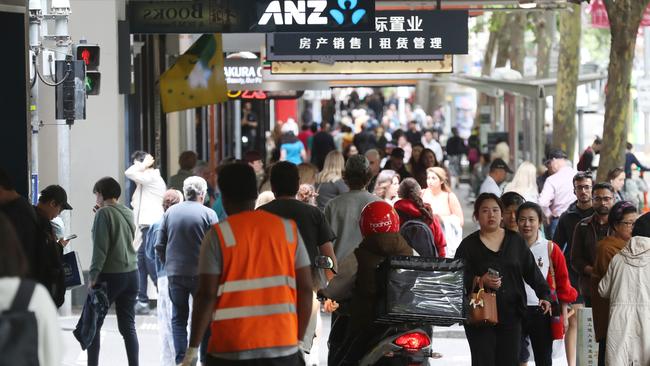
The hard pivot
The one thing that the Lowe RBA did get right, eventually, was to change course when it was proved wrong.
It was the same with the Stevens RBA before it.
Will the Bullock RBA put the incoming data before its failing theories?
It had better.
It is embarrassing the august institution, as every hawkish utterance appears to reference some fantasy economy in its head over that in front of its face.
David Llewellyn-Smith is Chief Strategist at the MB Fund and MB Super. David is the founding publisher and editor of MacroBusiness and was the founding publisher and global economy editor of The Diplomat, the Asia Pacific’s leading geopolitics and economics portal. He is the co-author of The Great Crash of 2008 with Ross Garnaut and was the editor of the second Garnaut Climate Change Review.
Originally published as ‘Failing theories’: Massive RBA misstep revealed as inflation collapses




